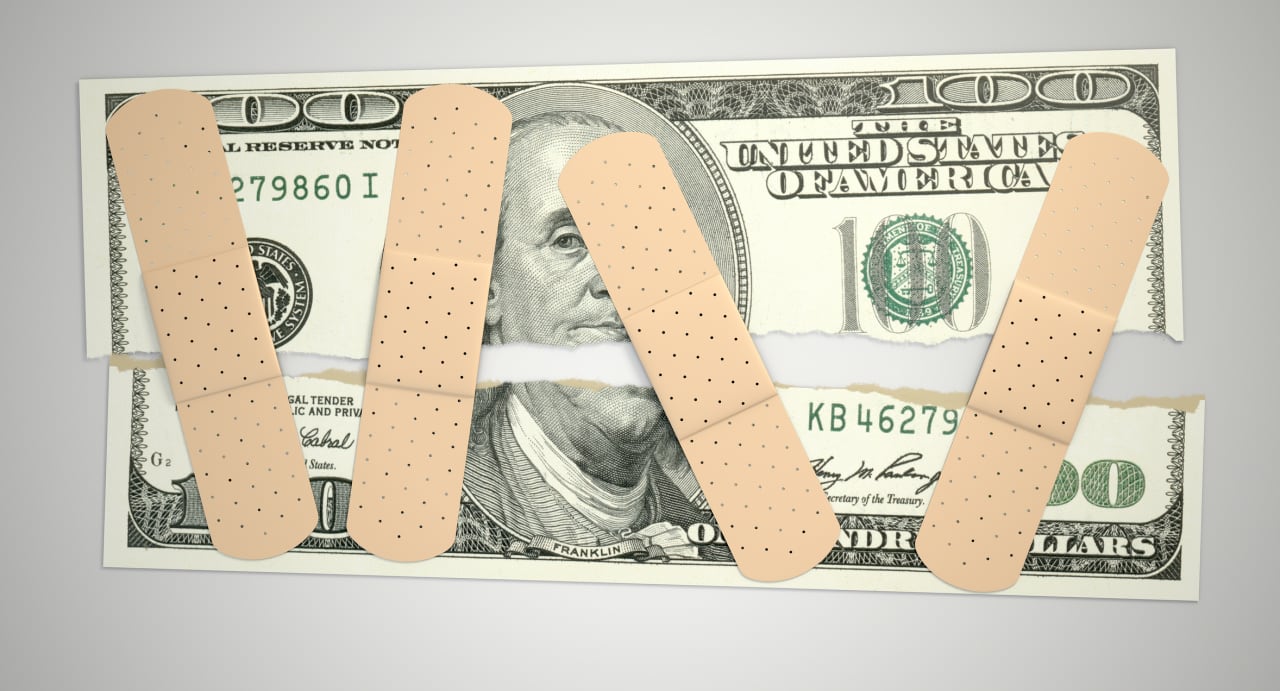Should I ‘rip off the bandage’ and pay the tax now on my $1 million nest egg?

Got a question about investing, how it fits into your overall financial plan and what strategies can help you make the most out of your money? You can write to me at beth.pinsker@marketwatch.com. Please put Fix My Portfolio in the subject line.
I am a 74-year-old retired widower. After spending 23 years in Canada in public education, a second marriage brought me to the U.S. where I became a naturalized citizen. I continued to work in public education for another 20 years where I contributed maximum amounts to 403(b) and 457 plans. My pensions from both locations provide sufficient funds to cover all of my expenses, including vacations and travel. I have over $500,000 invested in after-tax mutual funds should I need ‘rainy-day’ funds.
Now to my questions: I have about $1 million invested in those tax-deferred retirement vehicles. Is there any reason I should keep these? Is it wrong-thinking to consider just ripping off the bandage? By that I mean liquidating the tax-deferred funds and having one really bad tax year. Then I could leave the proceeds to my children free and clear without them having to worry about paying the taxes on an inherited IRA.
Thank you!
Mr. T
Dear Mr. T,
Since you are over the age of 59 ½, the money you have saved in your tax-deferred accounts is for you to use whatever way you see fit, so your opinion matters most. Sometimes people make money decisions for other reasons than just maximizing their tax efficiency, and that’s just as right-thinking as following some mathematical rubric.
What’s best for your heirs is an interesting question to explore, though, both in terms of the total dollar value and the ease of use for them. A protective instinct often kicks in for parents when they contemplate the financial legacy they might leave behind. You want to make things as frictionless as possible for your kids and not leave them any burden, but you also want to leave them as much as you can.
Some people might think: But how can leaving money to your children be a burden? The truth is that it can be complicated. Yes, you get the money, but inheriting an IRA also comes with unavoidable tax responsibilities for the inheritor. The government requires non-spouse heirs to empty those tax-deferred accounts by the end of 10 years and pay the tax due for every withdrawal. There will also likely be required minimum distributions each year, and heirs will have to keep track of those. It could impact your overall tax burden, financial aid for colleges, divorce settlements and any number of other financial circumstances.
None of this is especially burdensome, but it’s not nothing either. It’s never wrong-thinking as a parent to want to take care of that for your kids. However, if you’re concerned about whether the math makes sense, that’s another story. It most likely does not, and here’s why.
Secure your life vest first
You have plenty of other funds to pull from for your retirement, but you’re still pretty young at 74. If you live another 20 years and have high healthcare costs, you could run through the other parts of your retirement savings and you might end up missing the huge payment you made to the IRS to withdraw that $1 million all at once.
“The first question you want to ask is literally: Can you afford it?” says Sean Mullaney, a financial planner and certified public accountant (CPA) based in Woodland Hills, Calif.
“The tax is a real expense, and you don’t want to hurt your current sustainability.”
If you withdraw $1 million from a tax-deferred account all at once, your income for the year will be in the top federal tax bracket. Since you are filing as single, that means that all of your income for 2024 above $609,350 will be taxed at 37%. Your tax bill will be in the neighborhood of $328,000, depending on the rest of your expenses, deductions, credits and state taxes.
If you do that transaction as a Roth conversion, you’d want to pay the tax out of pocket, which would eat into a lot of your $500,000 savings. The funds would grow tax-free while you’re alive. Then when your heirs inherit, they’d have 10 years to withdraw the balance, at which point they’ll have to pay tax on any further gain. If you pay the tax out of the withdrawal and put the balance in a brokerage account instead, you’ll start with less and owe tax all along as it grows — and so will your heirs once they inherit it.
Other options for your money
It might be more efficient to simply designate your heirs as beneficiaries of your accounts and let them inherit what’s there after you are gone, paying the tax as they go over the course of 10 years. “It’s not that inconvenient,” says Rob Williams, managing director for financial planning at Charles Schwab.
You can also convert smaller amounts to a Roth IRA over time while you’re alive. The key to your decision lies in your current tax bracket and that of your children who will inherit.
If you are currently in the 35% tax bracket and your heirs are in a 22% or 24% bracket, it’s probably much more tax-efficient to leave the money in the tax-deferred account and let them take it out and pay tax on it at their rate once they inherit.
In Mullaney’s experience, the opposite scenario is more common — that the aging parent is in a low tax bracket and the inheriting child is in their highest-earning years and potentially in the 35% or 37% bracket. In that case, doing Roth conversions over time while you’re alive may make sense, but likely only up to the limits of the 24% income bracket, which would be $191,950 in 2024.
The only caveat would be if you’re, say, 95 years old, and know for sure you won’t need the funds. Then still, it’s more of an emotional decision than a financial one. “I cringe when I hear, ‘We’re going to rip off the bandage,’” says Mullaney. “Even at 95, I’d say to do it modestly.”
Williams sees these as two major downsides to converting your funds all at once: You miss out on tax-deferred growth and you’ll likely end up paying more in taxes than if you smooth out your tax burden by converting smaller amounts at a time in lower tax brackets.
“It’s actually potentially giving them less,” says Williams. “It’s an understandable goal to want to leave this free-and-clear to them, but the math doesn’t make that much sense.”
More Fix My Portfolio
Source link





